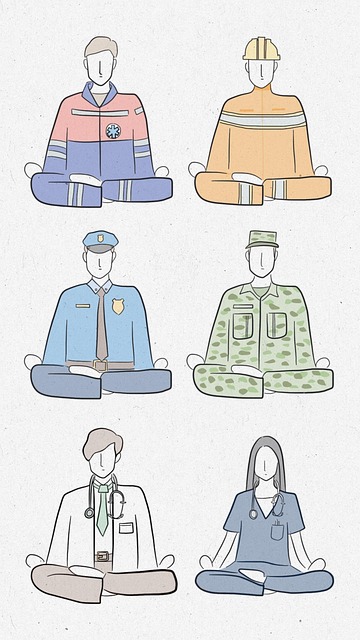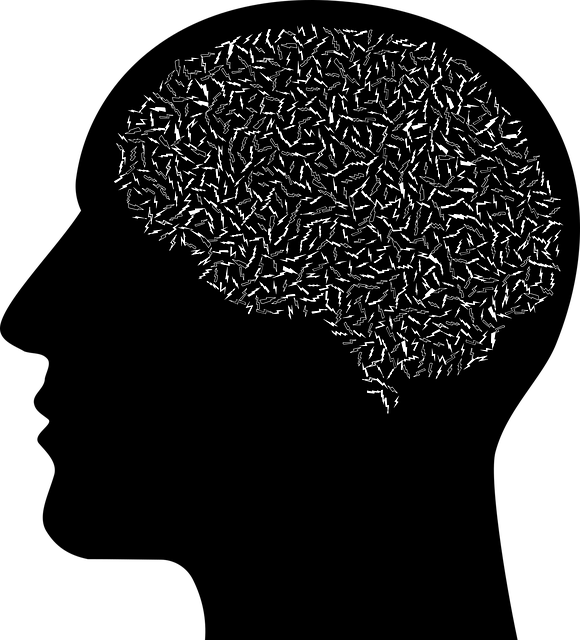In diverse Denver, cultural sensitivity is vital for effective Denver Cognitive Behavioral Therapy (CBT) practices. Therapists must understand and respect different cultural experiences, values, and beliefs to tailor their approaches, improve therapy outcomes, and build inclusive environments. The Mental Wellness Podcast Series Production plays a key role in highlighting these differences, providing practical communication strategies and bridging gaps between patients and practitioners. This inclusive approach not only strengthens therapist-client bonds but also contributes to a more harmonious mental healthcare ecosystem within Denver CBT circles.
In today’s diverse society, cultural sensitivity in mental healthcare is paramount. Understanding cultural diversity ensures effective treatment and fosters trust between patients and practitioners. This article explores the significance of cultural sensitivity in a multicultural context, delving into specific challenges and barriers within mental health care. We present Denver Cognitive Behavioral Therapy (CBT) as a practical model for adapting therapeutic approaches to diverse cultural contexts, supported by case studies demonstrating successful outcomes. Additionally, we offer strategies for mental health professionals to enhance their cultural competence and improve therapy outcomes through sensitive and respectful care.
- Understanding Cultural Diversity in Mental Healthcare
- – Exploring the significance of cultural sensitivity in a diverse society
- – Identifying cultural barriers and their impact on therapy
Understanding Cultural Diversity in Mental Healthcare

In the diverse landscape of mental healthcare, recognizing and respecting cultural diversity is paramount for effective treatment. The Denver Cognitive Behavioral Therapy (CBT) community has been actively exploring ways to integrate sensitivity to cultural nuances into therapy practices. This involves understanding that individuals from different backgrounds may approach mental wellness differently, influenced by their unique experiences, values, and beliefs. For instance, what constitutes stress or anxiety can vary greatly across cultures, as can expressions of emotional distress.
The Mental Wellness Podcast Series Production has played a significant role in shedding light on these cultural differences. Through engaging conversations, therapists delve into various communication strategies that bridge the gap between diverse patients and practitioners. By fostering open dialogues and encouraging positive thinking, these sessions not only enhance therapy outcomes but also contribute to building a more inclusive mental healthcare ecosystem in Denver CBT circles.
– Exploring the significance of cultural sensitivity in a diverse society

In a diverse society like Denver, where individuals from various cultural backgrounds coexist, cultural sensitivity in mental healthcare practice becomes paramount. The ability to understand and respect different cultural beliefs, values, and practices is not just a moral imperative but also a critical component of effective therapy. Denver Cognitive Behavioral Therapy (CBT) professionals must be adept at tailoring their approaches to meet the unique needs of every client, fostering an inclusive environment that promotes healing.
Cultural sensitivity goes beyond mere awareness; it involves integrating burnout prevention strategies for healthcare providers, emotional intelligence, and communication strategies into daily practice. By cultivating these skills, therapists can navigate complex cultural landscapes, address unconscious biases, and ensure that every patient receives the highest quality of care. This approach not only enhances therapy outcomes but also strengthens the bond between therapist and client, ultimately contributing to a more harmonious mental healthcare ecosystem in Denver.
– Identifying cultural barriers and their impact on therapy

In the diverse landscape of mental healthcare, cultural sensitivity is a cornerstone of effective therapy. Identifying and understanding cultural barriers is imperative to ensure equitable care, as these barriers can significantly impact a client’s experience and progress. For instance, language differences may hinder open communication, leading to misdiagnosis or misinterpretation of symptoms. Cultural norms surrounding emotional expression and mental health seeking behaviors also vary widely, affecting how clients present their issues. In Denver, where a melting pot of cultures coexists, Cognitive Behavioral Therapy (CBT) practitioners must be adept at tailoring their approach to address these nuances.
Moreover, cultural sensitivity extends beyond language and symptoms. It involves recognizing and respecting diverse family dynamics, community support systems, and belief systems that shape an individual’s mental health journey. Burnout prevention strategies for healthcare providers often emphasize the importance of self-care routine development for better mental health, but in culturally rich contexts, these practices must be mindful of cultural norms. Public awareness campaigns development, for instance, can be a powerful tool to destigmatize mental health issues across cultures, fostering environments where individuals feel safe to seek and receive Denver CBT therapy.
Cultural sensitivity is an indispensable aspect of mental healthcare, especially in diverse societies like Denver. By understanding and addressing cultural barriers, practitioners can provide more effective treatments, such as cognitive behavioral therapy (CBT), tailored to each client’s unique background. This approach ensures that everyone receives the highest quality care, fostering a more inclusive and supportive environment for all individuals seeking mental health services in Denver.












